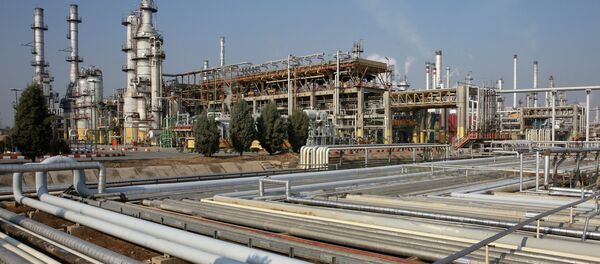WASHINGTON (Sputnik) — Large oil producing nations should adopt policies aimed at economic diversification to limit the impact of future oil price volatility, International Monetary Fund (IMF) fiscal policy division chief Benedict Clements told Sputnik.
"There is still an expectation that oil price volatility could potentially continue… We are saying, in effect, that economic diversification would help deal with some of this volatility, in the sense of if you're overly reliant on the oil sector then when bad times come in the oil sector, you are not as vulnerable," Clements said on Wednesday.
Clements explained that the levels of oil price volatility continue to be uncertain with a wide spread of predictions. Some market participants anticipate a rebound in oil prices into the $120 per barrel range in the next four years. Others have predicted prices will remain close to $30 per barrel.
"One thing many countries need to do also is provide adequate financing for small and medium-sized enterprises, really help provide the fundamentals behind a diversified economy," Clements advised.
The IMF has also encouraged large oil revenue-dependent nations to "level the playing field," creating equal incentives for oil and non-oil sector producers, Clements added. Proposed measures include ending subsidies to the oil sector, reforming labour markets, and reallocating revenue to stimulate the private sector.
Oil prices have collapsed substantially over the past two years, from a high of more than $108 in June 2014 to less than $30 per barrel in January 2016. Prices have rebound modestly in the recent months to slightly below $40 per barrel.
Official estimates by the IMF in April forecast global commodity prices would remain weak for a longer period of time, increasing pressure on commodity dependent economies.
The World Bank issued a similar forecast earlier in the year, citing slow global economic growth and oversupplied commodity markets as key contributors.


